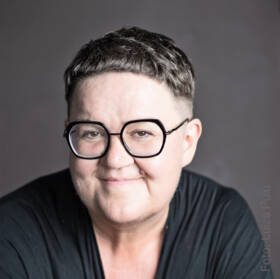Municipal ‘care councils’ for the participatory development of solutions for care issues and for the co-creative development of new support structures.
Background
Many Austrian communities struggle to provide sustainable care, assistance, and nursing services. This 'care crisis' manifests in supply bottlenecks and places an enormous burden on both relatives and professional nursing/care staff. The perception of care needs and caregiving responsibilities as individual fate further aggravates the problem, leaving those affected feeling alone, deserted, and overwhelmed. Overcoming this care crisis requires profound changes within society, as well as stronger collaboration among various stakeholders in social welfare and healthcare, policymakers, public administrators, and the general public.
Project contents and goals
The project care-council seeks to develop innovative solutions for:
- appropriate assistance for those in need of care and support,
- better conditions of professional care and nursing personnel,
- a fairer distribution of caregiving responsibilities between genders.
The actual implementation requires the active participation of all interest groups, as well as the negotiation and organization of care arrangements by society as a whole, rather than leaving such tasks primarily to those affected by the care crisis. All our efforts are guided by the conviction that the most effective way to find long-term solutions is through collaborative negotiation and development procedures including all parties.
Method
As part of this project, citizens and stakeholders in healthcare, care, nursing, and social work, as well as politicians, worked together to establish a care council in Kaltenleutgeben, Lower Austria. The care-council concept is based on principles created by Gabriele Winker, but we expanded and suited it to the project's purpose of institutionalizing democratic participation procedures. This allows a wide range of participants, who are involved in care work as well as persons affected, to shape the basic foundations and processes necessary for the creation and development of new support structures.
The Kaltenleutgeben care council, consisting of about 20 people, came together to discuss the following questions:
- How can we care for each other effectively?
- Which problems and questions arise?
- What services are available and what is lacking?
- Which (novel) solutions can be found?
These considerations led to new ideas for solutions. In a pilot project we also tested the concept of the care council and pinpointed areas for improvement. All of this aimed to lay the groundwork for lasting, sustainable solutions.
Results and conclusions
In this project, residents of Kaltenleutgeben came together to establish a care council, fostering discussions on caregiving and nursing with the aim of bringing about social innovations. Citizens, affected individuals, and interest groups shared their experiences and received the chance to voice their demands and needs to policymakers.
In the course of the project, it was also possible to explore how well the model and methods of such a care council work in practice, what opportunities it offers, the challenges that need to be overcome, and the limitations it may have. Encouraged by the promising results, an immediate follow up project and the realization of further care council meetings took place in 2024.
You want to know more? Feel free to ask!
Department of Social Sciences
Franziska Vesenmaier
- Universität Wien (lead)
- Gemeinde Kaltenleutgeben


